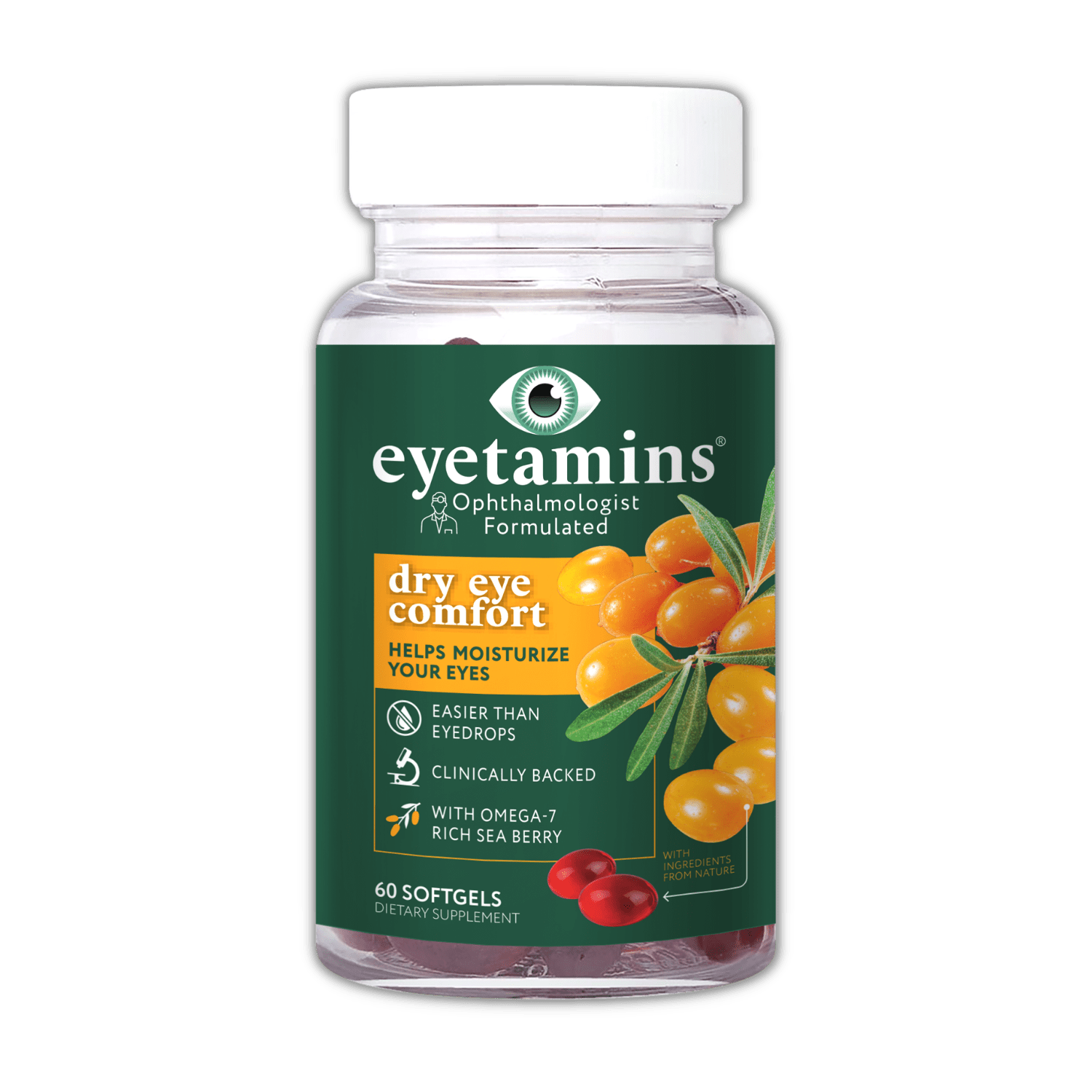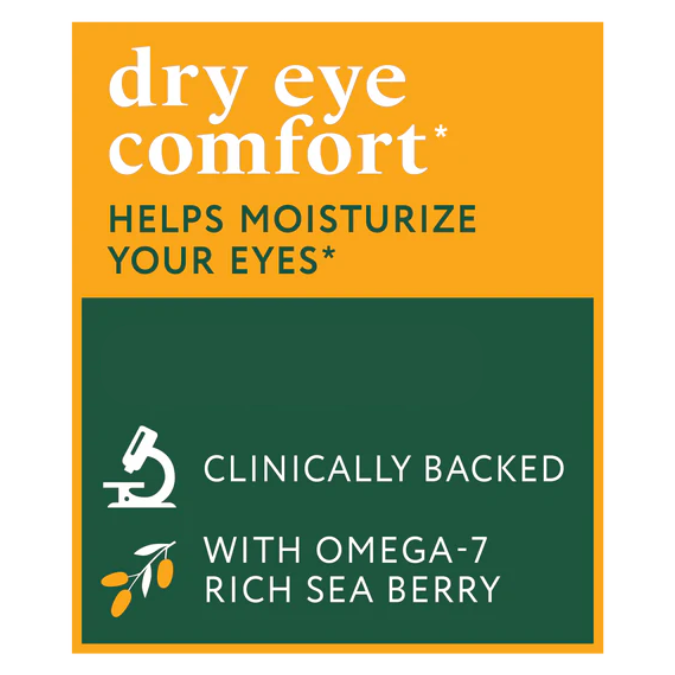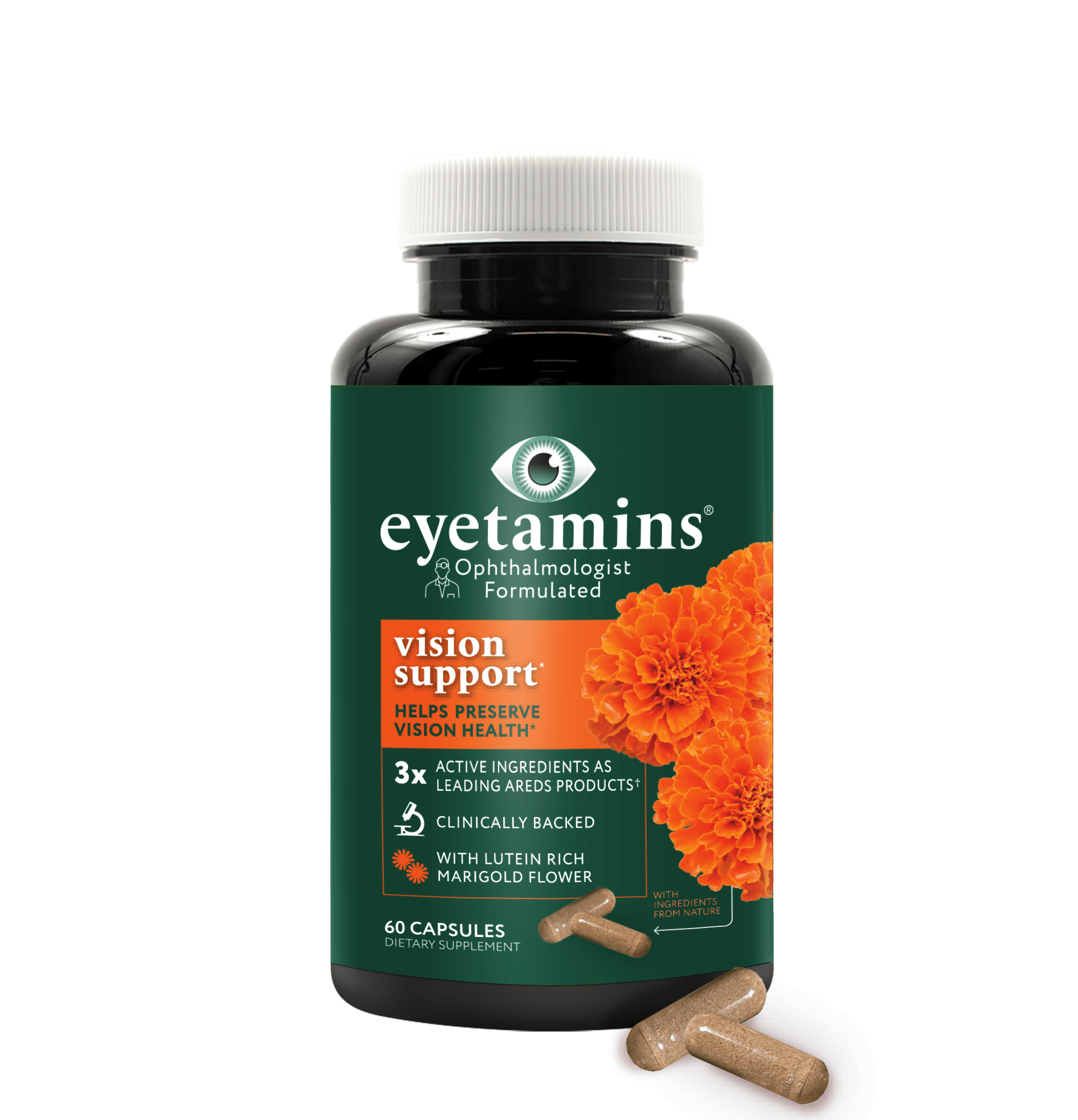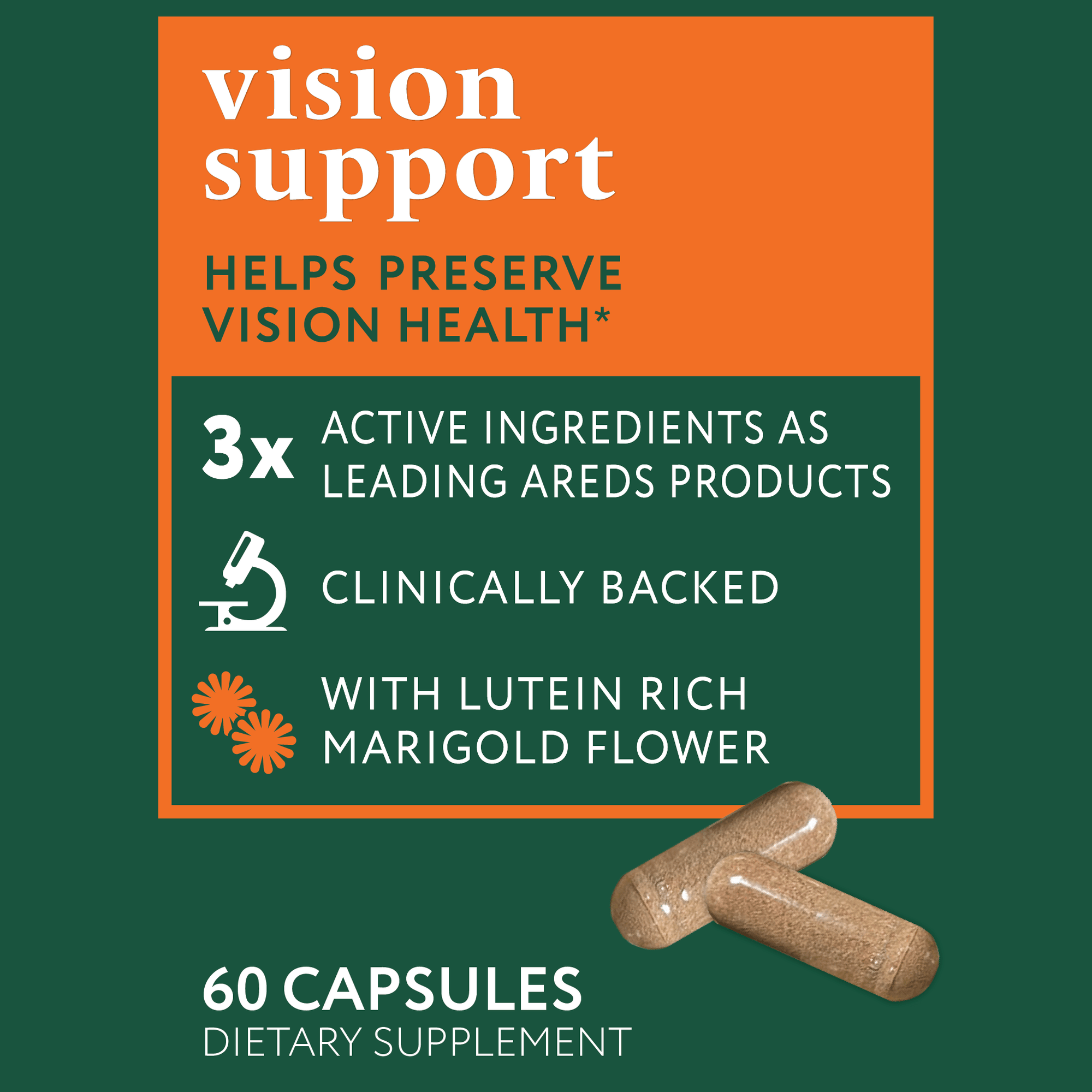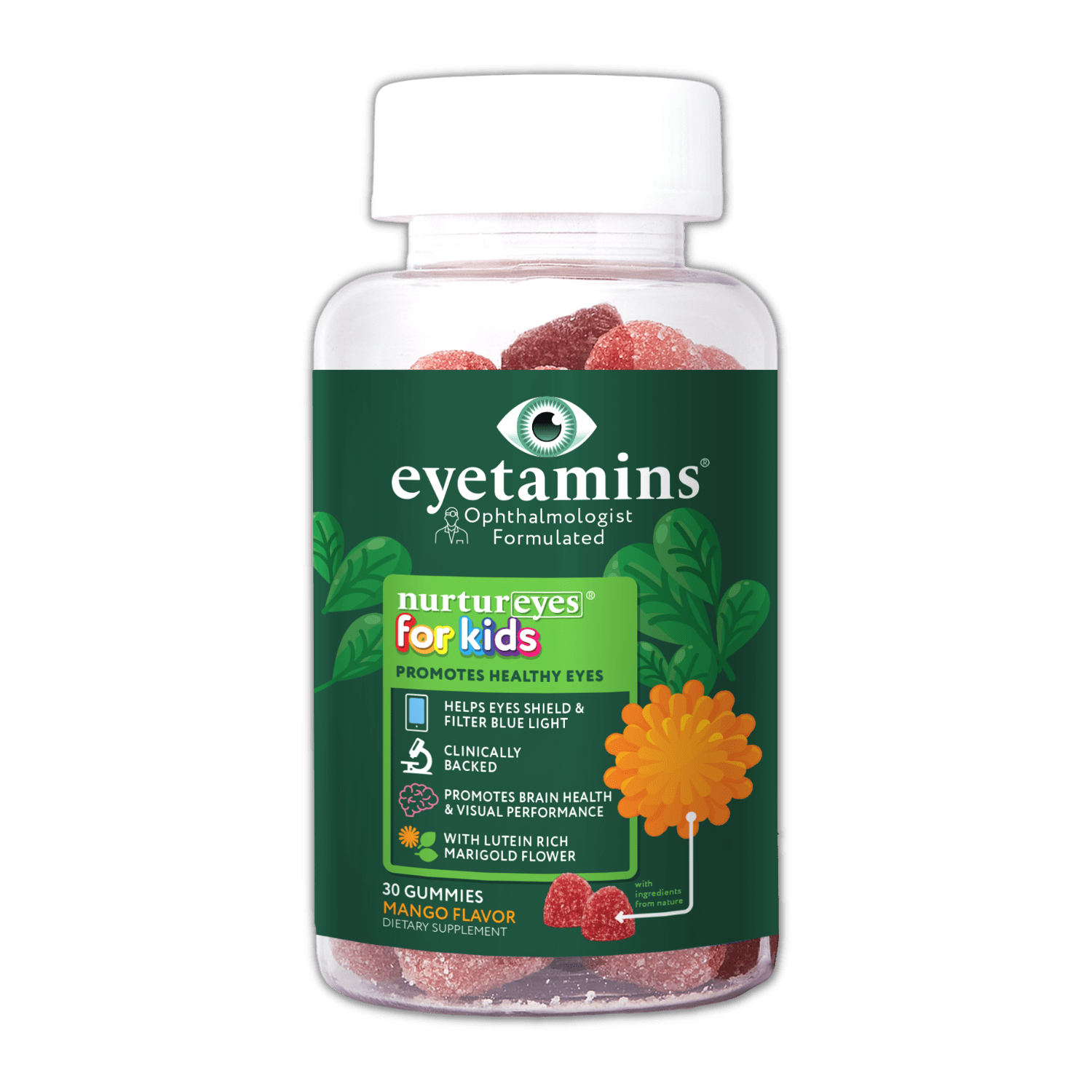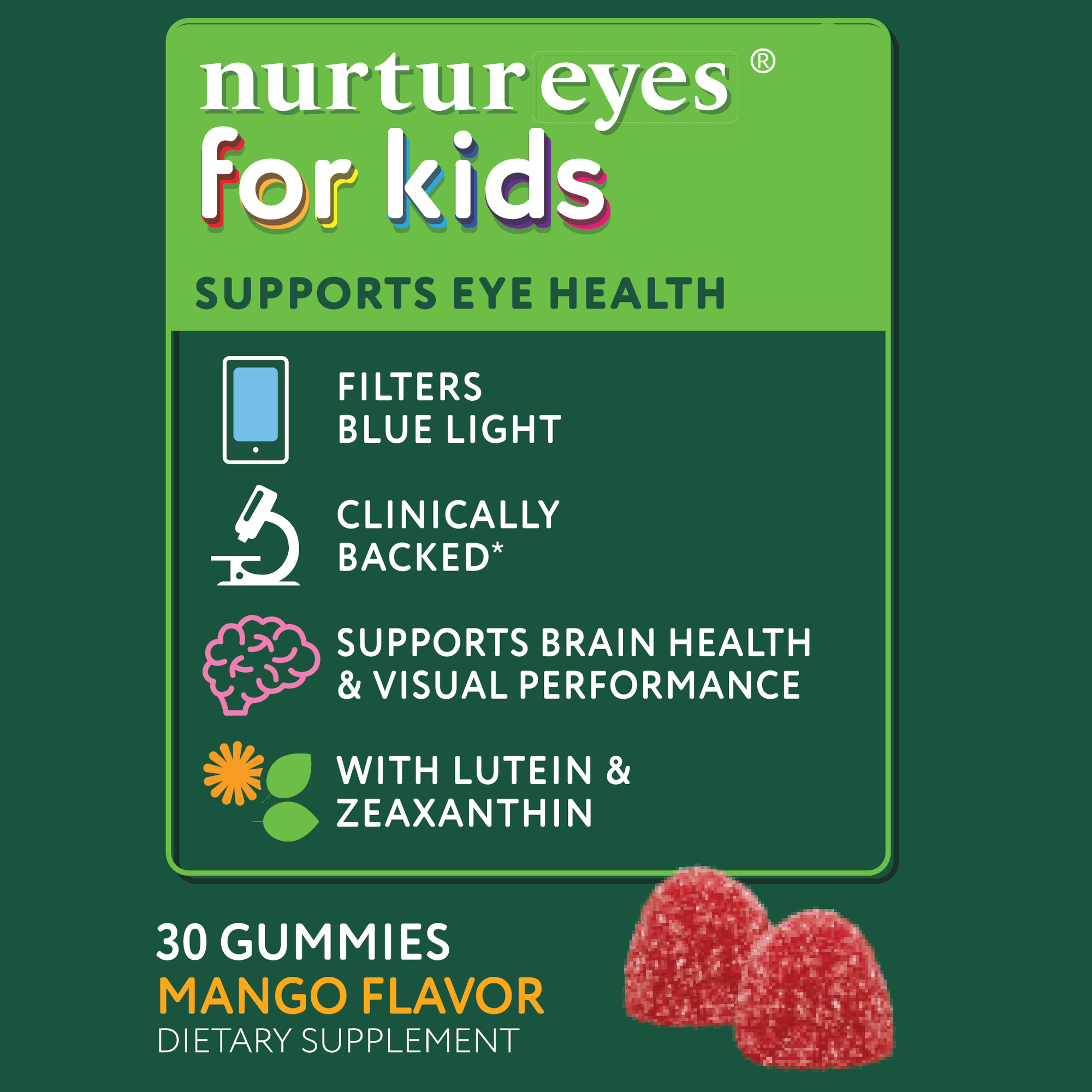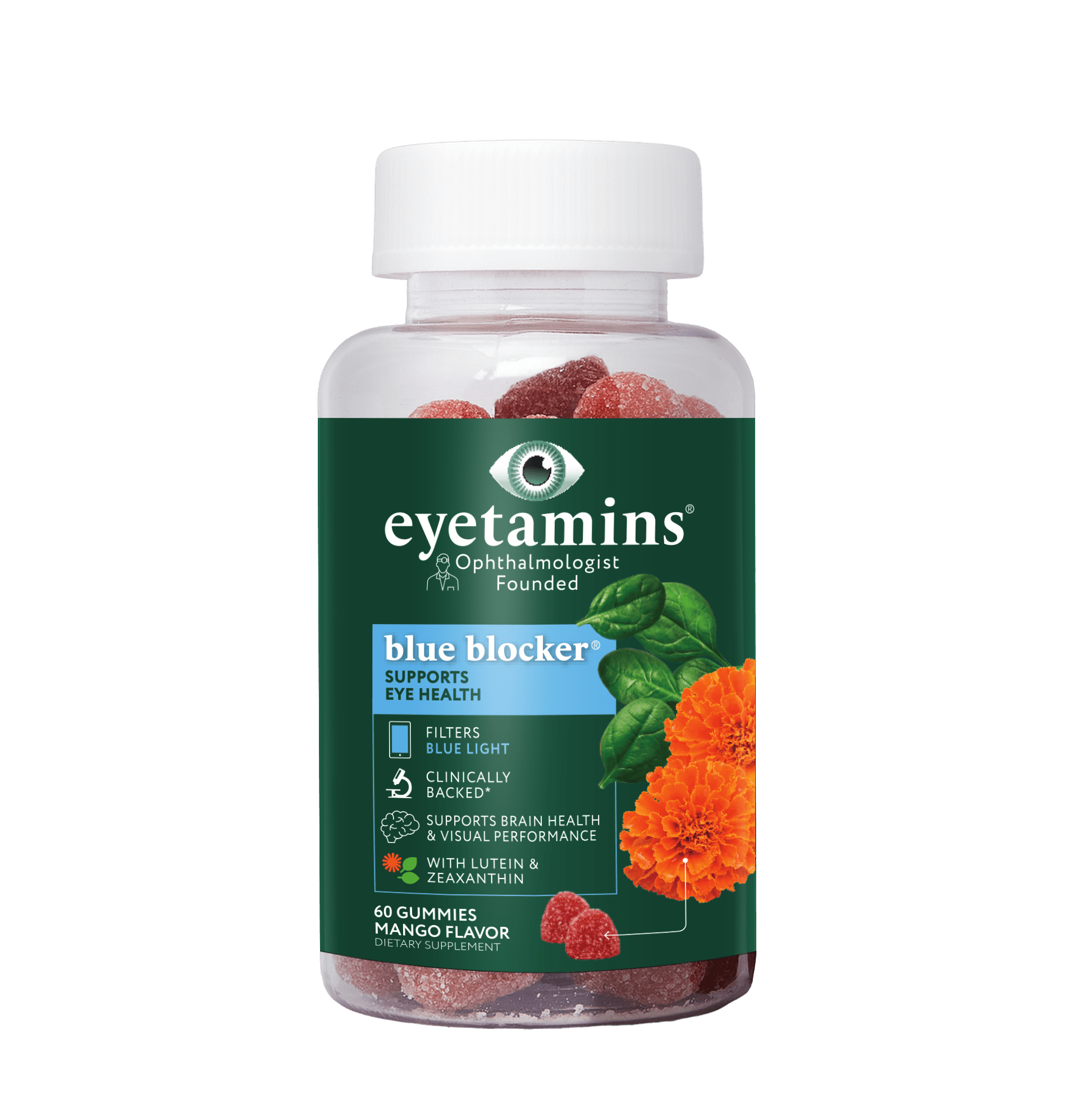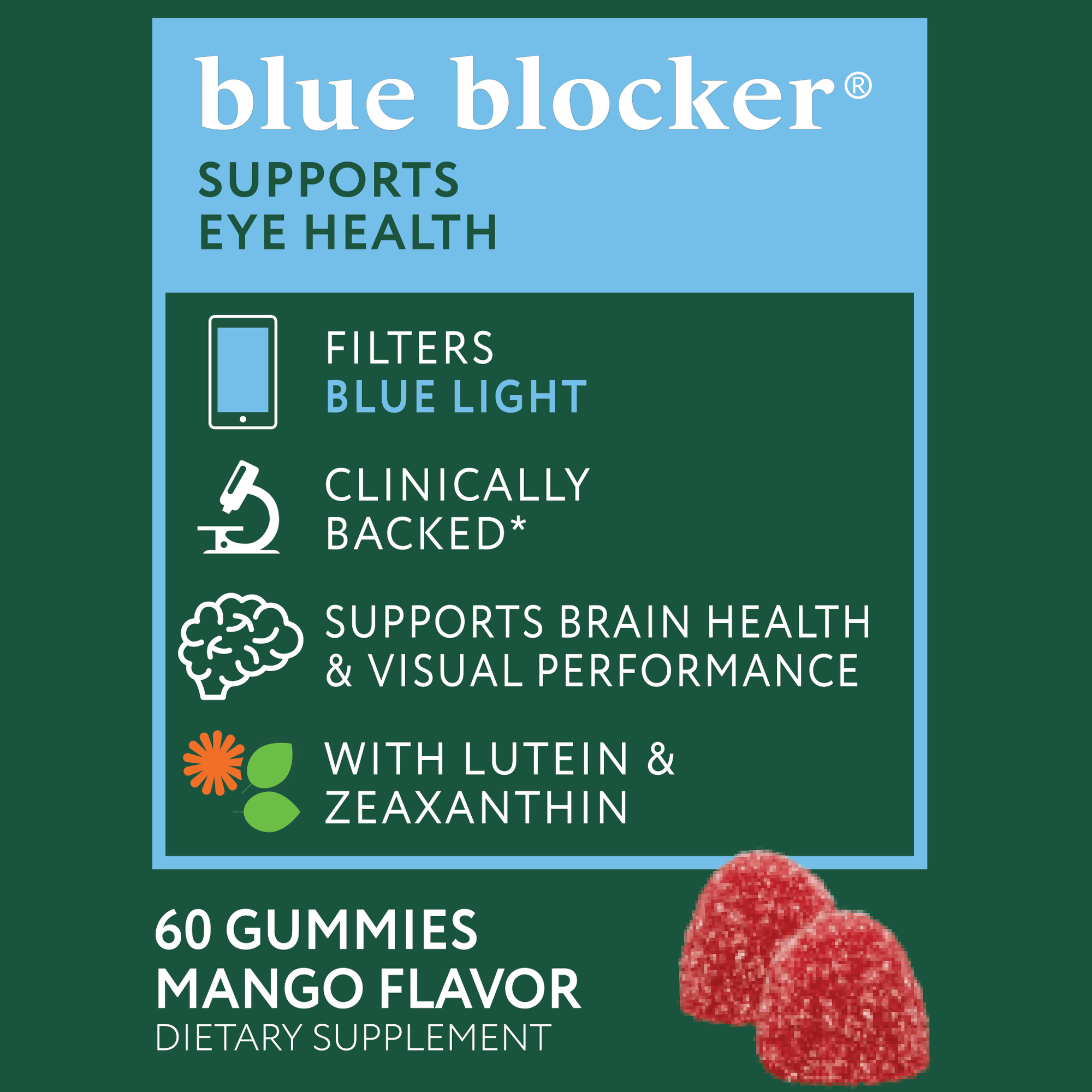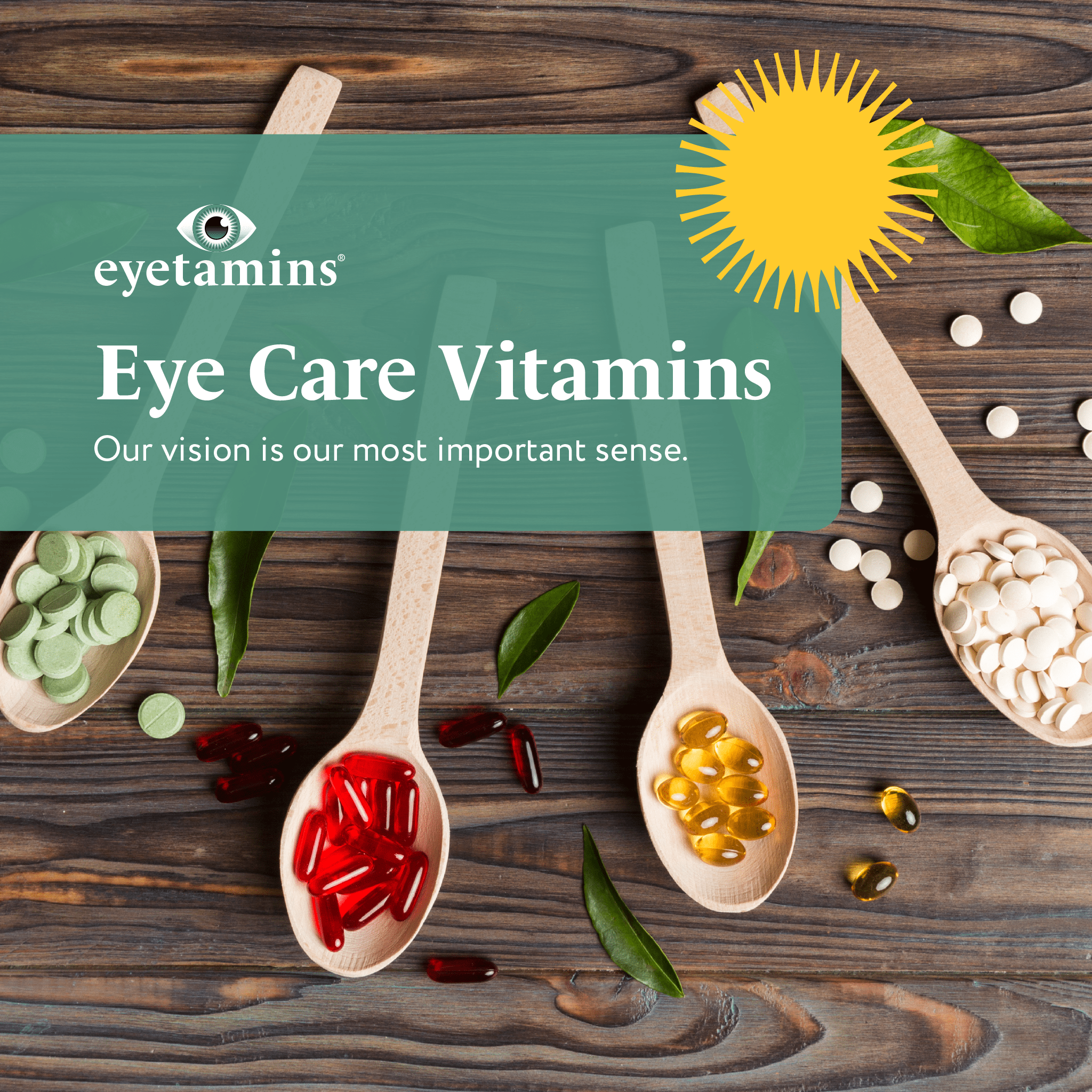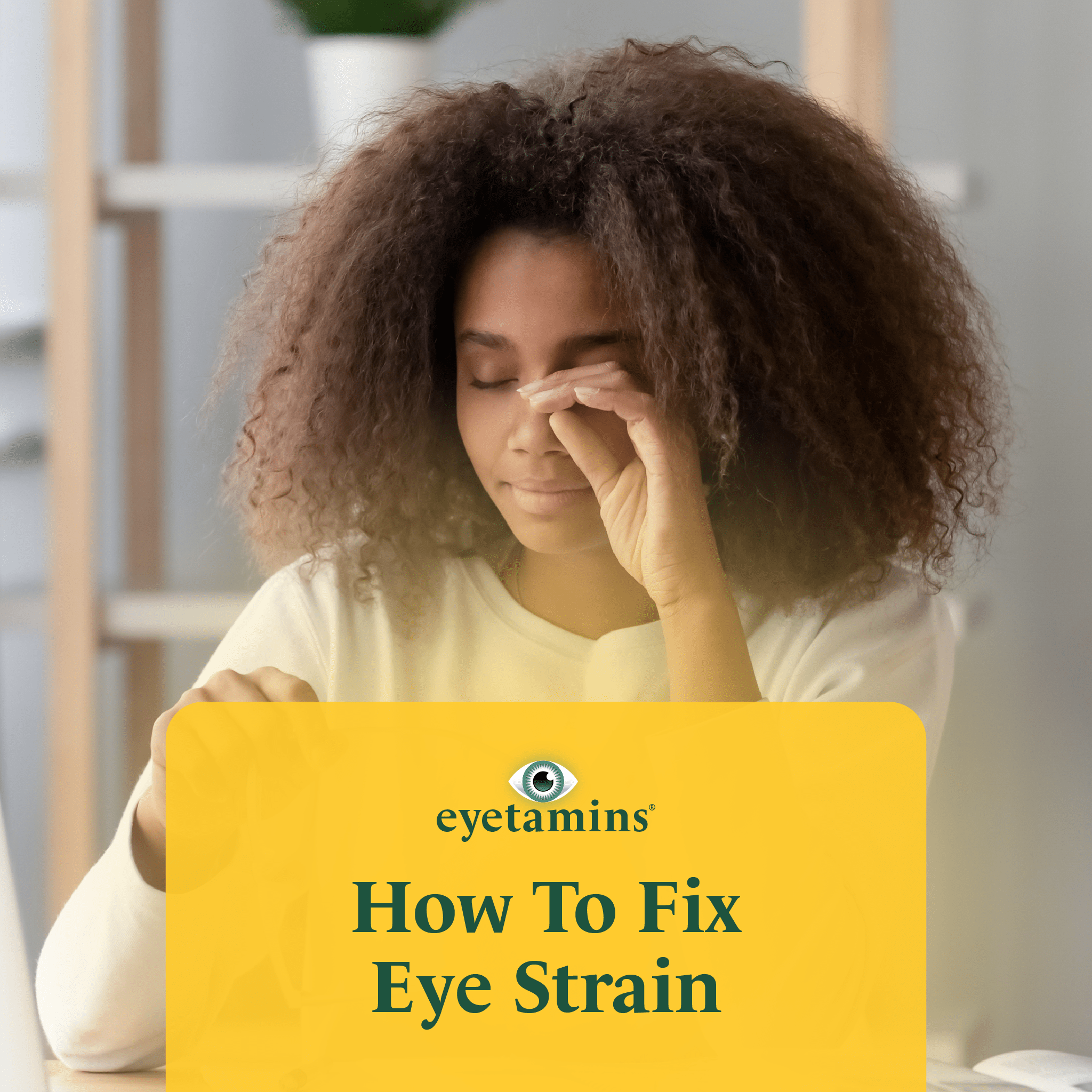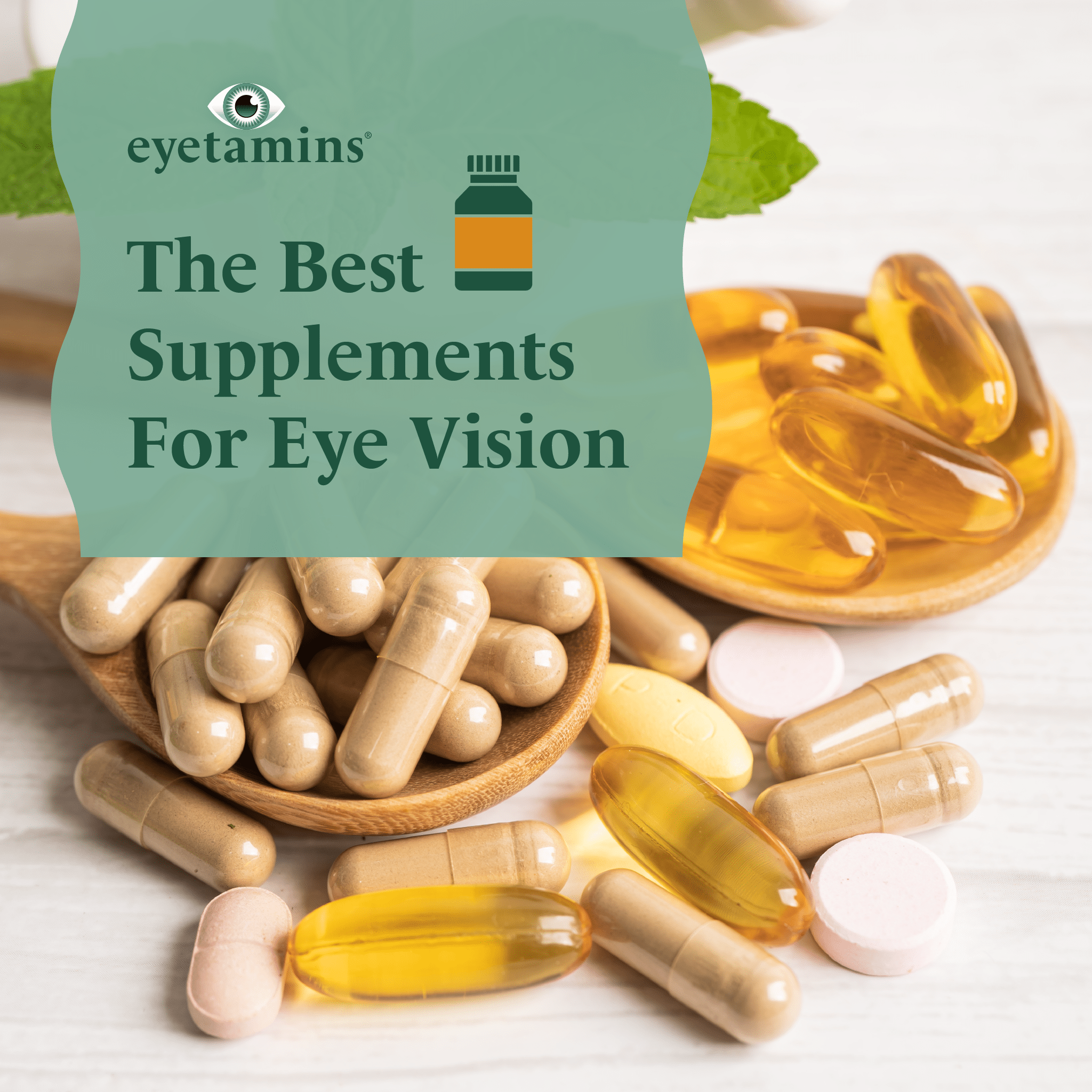· By Dr. Kaushal M. Kulkarni, M.D.
Do Blue Light Glasses Work?
The human body constantly needs to be protected from the external environment. We wear clothes to protect ourselves from cold, shoes to protect our feet from rough surfaces, masks to protect us from germs and toxic fumes. But what about our eyes? Screens emit a blue light that may have effects on our vision. This light has a profound effect on our sleep-wake cycle, causing us to get less sleep. Some suggest that continued exposure to this light could damage the cells of the retina, which could cause vision problems like age-related macular degeneration, although this is not proven.
And adults are said to spend about 8 to 10 hours a day in front of a screen on average, greatly increasing this blue light exposure. We work in front of them, communicate with them, and entertain ourselves with them. And with more and more people working from home, a reduction in screen time may not be a viable solution. So what are some other options to protect our eyes? Let’s look at the effectiveness of these glasses, both internal and external.

Blue Light Blocking Glasses
You may have heard of this new craze in eyewear. These types of glasses are said to filter out harmful blue light that comes from electronic devices like smartphones, laptops, or LED screens. The non-prescription spectacles are made of light-filtering materials, or your existing prescription glasses can be coated with special protection. People who are exposed to screens in excessive amounts sport this eyewear with the hope of reducing eye strain, alleviating headaches, and encouraging healthier sleep patterns.
But do they work? There are conflicting stories on the effectiveness of this eyewear. And there is also not a lot of data showing that these glasses make a difference when it comes to eyestrain, headaches, and sleep. The American Academy of Ophthalmology (AAO) doesn’t even believe that they are necessary for computer use, stating that there is still no evidence that the glasses help these issues.

Best Blue-Light Blocking Glasses
In our opinion, the best glasses are already built into your eyes. They are the carotenoids lutein and zeaxanthin. Carotenoids are powerful antioxidants that are produced by plants. They are found in kale, broccoli, and spinach, and give other fruits and vegetables their yellow or red color.
Not only are they found naturally in our food, but they are also present in the eye’s lens, retina, and macula. These nutrients are the only dietary carotenoids that accumulate in your eye, most notably in the macula which is essential for your vision. Due to the high amounts of these carotenoids found in this region, they are called macular pigments. We are born with a certain amount of these nutrients in our eyes, but our bodies do not produce them. They degrade and disappear with time, necessitating the need for supplementation through our diet or daily vitamins.
Lutein and zeaxanthin are very similar in structure, their atoms are simply arranged a bit differently. For most purposes, they seem to work even better when combined. Zeaxanthin is the key ingredient for your internal sunglasses, with the ability to reflect light. A healthy eye is said to have a 2:1 ratio of zeaxanthin to lutein. Even though zeaxanthin is said to be more vital, lutein is needed to boost its effectiveness.
Blue Light Filter Glasses
So the question is, do you want to spend money on blue light glasses which can be clunky, inconvenient, and breakable? Or would you prefer to invest in your overall eye health with lutein and zeaxanthin supplements? Let’s explore the effectiveness of these two kinds of glasses: the internal and the external.
Lutein and Zeaxanthin: They are your eye’s natural sunblock. Lutein and zeaxanthin work together to protect your eyes from high-energy light waves such as sunlight. Harmful free radicals are introduced during our eyes’ exposure to oxygen and light. However, these two antioxidant forces combine to neutralize these free radicals, eliminating the potential for eye damage. Lutein and zeaxanthin are said to protect your eyes from this harmful form of light. There have been studies that indicate that having a high level of both of these nutrients is associated with healthier vision. This is especially true for better sight in dim light or when glare is present.
Not only are lutein and zeaxanthin linked with healthier vision, but they may also help in conditions like age-related eye diseases.
Blue Light Glasses: Research in the effectiveness of these spectacles is still lacking. The potential benefits of these specs are said to be reduced eye strain, headache alleviation, and better sleep. When we use our devices late in the night, the light is signaling to our brains to keep our bodies awake. There has been some research showing that wearing the glasses three to four hours before bedtime can help improve your sleep, allowing you better rest. So, if you tend to have difficulty falling asleep, you may want to try out a pair. What could it hurt?
However, you may be surprised to find out that your eye strain and headaches from screens aren’t directly caused by the light itself. Most eye discomfort issues are from something called computer vision syndrome (CVS). When we stare at screens for too long, we don’t blink as much, which makes our cornea dry out and become irritated. This can be avoided by using eye drops and practicing good screen habits, like taking frequent breaks to adjust your eyes. These glasses may also be helpful for kids who are exposed to a lot of blue light.
What are Blue Light Glasses
Blue light blocking glasses have specially crafted lenses that are said to block and filter out the light. They are said to block a percentage of the light emanating from screens. The lenses are treated with a special coating that reflects some of the light away from your eyes. What percentage of the rays are blocked will depend on which glasses you buy.
Some of the lenses have a yellow tint, while some are clear. The yellowed ones tend to filter more of the rays than the clear ones.
The question is do these glasses work? In essence, we don’t believe they have the effects they often claim they do. In reality, you are better off saving your money, turning the screen off an hour before bedtime, practicing mindful screen habits, and investing in supplements that can contribute to your overall eye health.
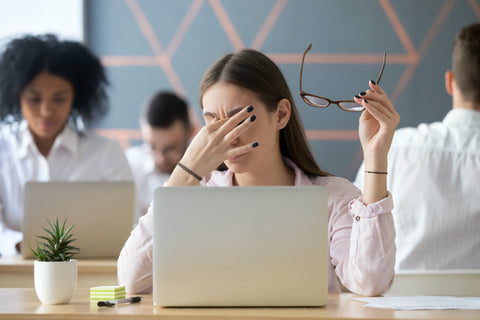
Protection from the Inside
Screens are still a relatively new thing in the modern age and are a common cause of eye strain. We are still finding out about the harmful effects screens can have on our eyes, and what possible issues can occur down the road. The best thing to do is to stay vigilant in constantly assessing any changes in your eyesight. And, invest in your eye health, protecting your vision from the inside.
Kids Blue Light Blocking Glasses
Visual development in children starts early in the womb. The maturation process of the eye and the retina is an incredibly complex process that ultimately determines your child’s future vision. That is why it is important to ensure that pregnant mothers maintain a proper diet and nutrition protocol.
Lutein and Zeaxanthin
The best way for your child to get these essential nutrients for eye health is through good nutrition habits. However, it is quite common for children to not get enough of these nutrients through their diet. Supplements may be considered for older children to provide the essential eye nutrients needed.
In fact, recent studies have proven that high amounts of lutein and zeaxanthin in the brain are associated with reasoning and memory in school-aged children. It’s also been shown in studies that having high levels of lutein and zeaxanthin can help students with their reasoning skills, especially when related to the subjects of mathematics and language skills.
Children’s eyes are said to absorb even more blue light from screens than adults’ eyes. We must do our best to protect them during this vulnerable time in life. However, kids blue light glasses are not the best solution, because, as we have explained, getting the proper nutrients for visual development and supporting underlying growth and maturation of the visual system is the most important thing you can do. Obviously, a pair of yellow glasses is not going to do that.
- Vitamins: Plant extracts lutein and zeaxanthin are found naturally in the eye. They are primary filters of high-energy blue light. Along with meso-zeaxanthin, they support visual health by protecting the eye from oxidative stress as well as inflammation. Additionally, they also promote brain and cognitive development in kids. Vitamins can also be good for getting rid of eye strain, which excess exposure to blue light can cause.
Taking vitamins is a great way to help your child neutralize the screen time. Along with a healthy diet, vitamins are the perfect supplement for eye health. We will now discuss some of the best vitamins available that can protect your child’s eyes from blue light.
-
Lutein: Lutein is a naturally-occurring carotenoid. Carotenoids are mainly yellow, orange, or red fat-soluble pigments that give some plants their color. This carotenoid is related to beta-carotene, another carotenoid, as well as vitamin A. Lutein, along with zeaxanthin, are found as a color pigment in the macula and retina of the eye. They are thought to function as natural light filters that protect the eye from sun damage. You can find lutein in foods like egg yolks, corn, broccoli, spinach, kale, orange pepper, kiwi, grapes, orange juice, squash, and zucchini. It is best absorbed when taken with a meal high in fat. Lutein has built up quite a reputation in the eye health community. Lots of studies have been conducted on it as well as other carotenoids, with positive results. People often take lutein supplements for its possible benefit in preventing eye diseases like age-related macular degeneration and cataracts. You can often find it in small doses in many multivitamins.
- Zeaxanthin: Similarly, this carotenoid also helps filter blue light. Also naturally occurring in the eye, zeaxanthin does not replenish as we age, leaving us more vulnerable later in life to eye problems. That is why it is a good idea to take it in supplement form, even from an early age. Taking both lutein and zeaxanthin can improve contrast sensitivity. This means your child may be better able to discern objects from their background. They also help with light sensitivity and glare recovery. As your child’s lutein and zeaxanthin levels increase, he or she may better deal with existing eye issues as well as possibly be better protected from the development of age-related eye health issues down the line.
- Meso-zeaxanthin: Recently a third carotenoid has been discovered in the macula, though not completely the same as the other two. Meso-zeaxanthin is a non-dietary carotenoid, meaning it is not found naturally in our diet like the other two. Evidence suggests that meso-zeaxanthin is produced by lutein in the retina through an isomerization process. Lutein and zeaxanthin are said to be transported from the serum to the retina, then to the macula. This is where lutein is converted into meso-zeaxanthin. These three powerful carotenoids make up the macular pigment that comes together to protect the retina from harm.
Nurtureyes™ to Nurture Your Child’s Eyes
Make your child’s eye health a priority in this age of digital technology. It is important to keep regular eye doctor visits as your child ages, to ensure the best eye care during this vulnerable time in eye development. We hope you have learned a bit more about children’s eye health, as well as the variety of vitamins that can help contribute. From this article, you have learned three key ingredients to help protect your child’s eyes from harmful blue light.
These three eye protectors are now available from us here at eyetamins™. Now in gummy form! Lutein, zeaxanthin, and meso-zeaxanthin from Lutemax 2020 make up our new product for kids called nurtureyes®. Lutemax 2020 ensures top quality, curated ingredients. With one mango-flavored gummy a day, your child will be on the way to better eye health. Our blue blocker® product helps filter blue light due to excess screen time. It can also help nurture visual and cognitive development, as well as promotes better sleep and focus. The long-term eye health of your child is so important, as well as your own.


